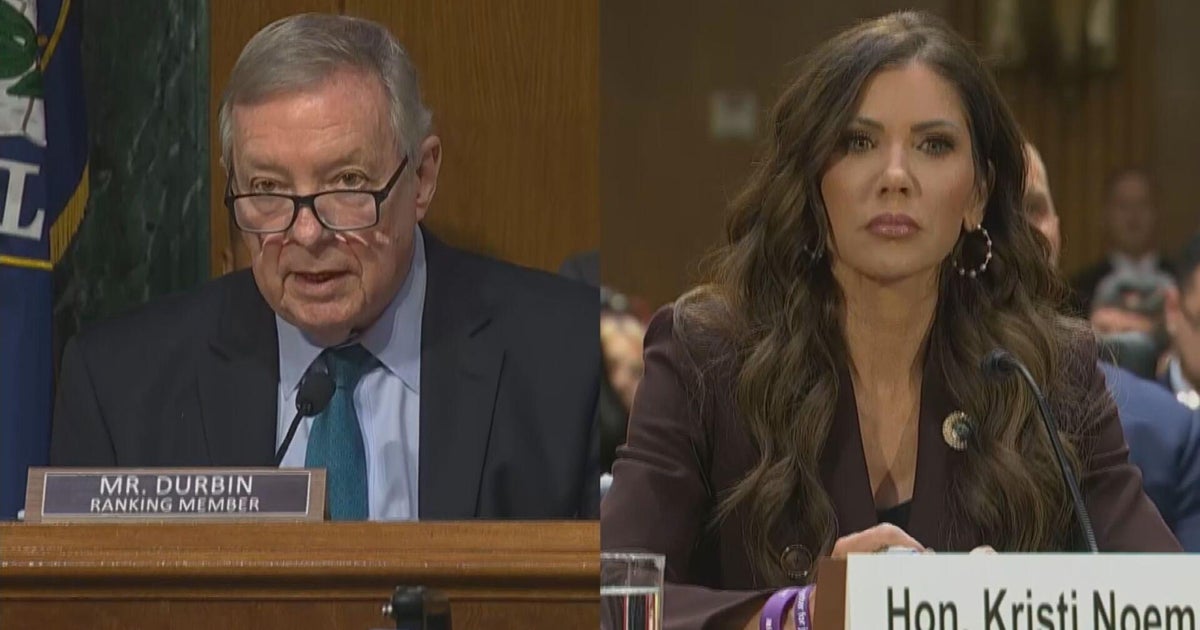'Texas Has Carried More Than Its Share': Gov. Greg Abbott To Reject New Refugees, First Under Trump
HOUSTON (CBSDFW.COM/AP) — Texas Gov. Greg Abbott says the state will reject the re-settlement of new refugees, becoming the first state known to do so under a recent Trump administration order.
In a letter released Friday, Abbott wrote that Texas "has been left by Congress to deal with disproportionate migration issues resulting from a broken federal immigration system."
On behalf of the State of Texas, I write in response to Executive Order 13888, on Enhancing State and Local Involvement in Refugee Resettlement, as issued by President Trump on September 26, 2019.
Texas is one of the most welcoming states for refugees seeking to escape dangers abroad. since FY2010, more refugees have been received in Texas than in any other state. In fact, over that decade, roughly 10% of all refugees resettled in the United States have been placed in Texas. Even today, the process of resettling continues for many of these refugees.
In addition to accepting refugees all these years, Texas has been left by Congress to deal with disproportionate migration issues resulting from a broken federal immigration system. In May 2019, for example, around 100,000 migrants were apprehended crossing this state's southern border. In June 2019, individuals from 52 different countries were apprehended here. And in FY2018, the apprehensions included citizens from disparate countries like China, Iran, Kenya, Russia, and Tonga. Texas continues to have to deal with the consequences of an immigration system that Congress has failed to fix.
At this time, the state and non-profit organizations have a responsibility to dedicate available resources to those who are already here, including refugees, migrants, and the homeless—indeed, all Texans. As a result, Texas cannot consent to initial refugee resettlement for FY2020. This decision does not deny any refugee access to the United States. Nor does it preclude a refugee from later coming to Texas after initially settling in another state.
Texas has carried more than its share in assisting the refugee resettlement process and appreciates that other states are available to help with these efforts.
He added that Texas, which typically takes in thousands of refugees each year, has done "more than its share."
Governors in 42 other states have said they will consent to allowing in more refugees, according to the Lutheran Immigration and Refugee Service.
CEO of Refugee Services of Texas Russell Smith said the governor's decision is sad and disappointing.
We are deeply saddened and disappointed by the decision of Texas Governor Greg Abbott to make Texas the first U.S. state to halt refugees from being resettled in 2020.
Texas has been a leader in providing safety, fresh starts, and open hearts for thousands of the world's most vulnerable children, mothers, and fathers since the U.S. refugee resettlement program began more than 40 years ago.
This devastating decision reflects an ongoing confusion between illegal immigration and border security and the American refugee resettlement program—which entails by far the most stringent vetting process in the world. Refugees are, by definition, the ones at risk of displacement, persecution, torture, and death. Refugees who arrive in the U.S. have legal documentation, have been fully vetted and security screened, and represent one of the most resilient, hard-working, entrepreneurial, and successful segments of the population.
The decision by Gov. Abbott also comes at a time the world is experiencing the worst humanitarian crisis in modern history. Now is not the time to abandon Texas' historic role in refugee resettlement; rather, this is a time to renew our commitment to helping refugees resettle in Texas.
(© Copyright 2020 CBS Broadcasting Inc. All Rights Reserved. The Associated Press contributed to this report.)







